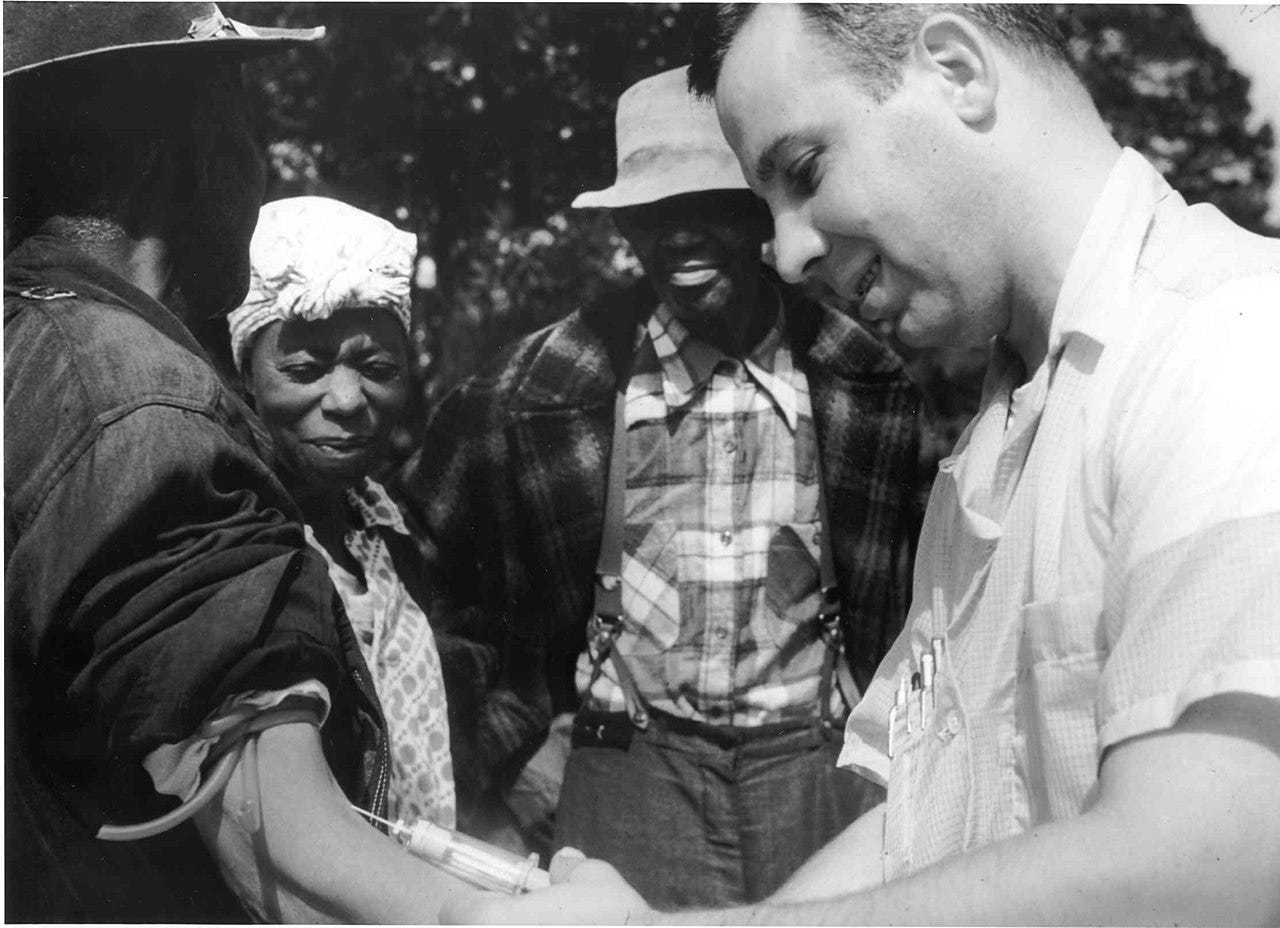From Bad Blood to Infamy: The Untold Story of the Tuskegee Syphilis Study

The Tuskegee Syphilis Study was a notorious medical research experiment that took place in the United States from 1932 to 1972. The study was conducted by the United States Public Health Service (USPHS) and was aimed at studying the natural progression of syphilis in African American men who were living in rural Alabama.
The study began in 1932, during a time when syphilis was a significant public health problem in the United States. The researchers recruited 600 African American men, 399 of whom had syphilis and 201 who did not. The men were told that they were being treated for "bad blood," a term used at the time to describe a variety of conditions, including syphilis, anemia, and fatigue. The men were offered free medical care, meals, and burial insurance in exchange for participating in the study.
However, the study's design was fundamentally flawed, as the researchers intended to observe the progression of the disease rather than treat it. The study was supposed to last only six months, but it was extended indefinitely. Over the years, the men were not given proper treatment for their disease, even after penicillin became a widely available cure in the 1940s. Instead, the researchers studied the men's disease progression, documenting the painful and often fatal consequences of untreated syphilis.
It is worth noting that the study took place during a period of widespread racism and segregation in the United States. The subjects were all African American men, who lived in an impoverished rural area where they had limited access to medical care. Many of the subjects had little education and did not fully understand the nature of the study or their rights as research participants. This lack of understanding was further compounded by the fact that the researchers did not provide informed consent to the subjects.
The Tuskegee Study continued for forty years, despite protests from some individuals who were concerned about the unethical nature of the experiment. Eventually, in 1972, a public outcry led to the study's termination. The National Commission for the Protection of Human Subjects of Biomedical and Behavioral Research investigated the study and found that the men were not informed about the true nature of the study, that they were not given proper treatment for their disease, and that they were subject to unnecessary pain and suffering.
The Tuskegee Syphilis Study remains one of the most shameful episodes in the history of medical research in the United States. The study demonstrated the dangers of unchecked scientific experimentation and the need for ethical guidelines and regulations to protect research participants. The study led to the creation of the National Research Act of 1974, which established the Institutional Review Board (IRB) system that is in place today. The IRB system ensures that all research involving human subjects is reviewed and approved by an independent board of experts who assess the potential risks and benefits of the study, as well as the methods used to obtain informed consent from participants.
The Tuskegee Syphilis Study was a dark chapter in the history of medical research in the United States. It demonstrated the importance of ethical guidelines and regulations in research, as well as the need for proper informed consent procedures and the need to prioritize patient welfare over scientific curiosity. The legacy of the study serves as a reminder of the harm that can occur when the ethical principles that underpin scientific research are not respected. The study's impact on African American communities' trust in medical research has been long-lasting, and efforts to address this issue are still continuing today.



